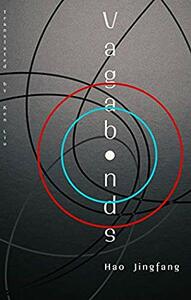Take a photo of a barcode or cover
slow-paced
slow-paced
Plot or Character Driven:
Character
Strong character development:
No
Loveable characters:
No
Diverse cast of characters:
No
Flaws of characters a main focus:
Yes
challenging
reflective
slow-paced
Plot or Character Driven:
A mix
Strong character development:
Complicated
Loveable characters:
No
Diverse cast of characters:
No
Flaws of characters a main focus:
No
Después de un 40% lo dejo. Estoy empezando a pensar que lo mío no son los autores chinos de ciencia ficción
Plot or Character Driven:
Character
adventurous
challenging
slow-paced
reflective
slow-paced
Plot or Character Driven:
Character
Strong character development:
Complicated
Loveable characters:
Complicated
Diverse cast of characters:
Complicated
Flaws of characters a main focus:
No
I'd been anticipating this for a long time, and despite the slow pacing was quietly intrigued throughout Part 1. However, the book is made up of 3 parts - I very nearly DNF'd this multiple times in Part 2 especially. The writing is beautiful, but repetitive. Constant fragments of exposition would come up in chapter after chapter, and minor plot points would be reiterated. I appreciated some of the points made, but by the end of this book I was just desperate for it to be over.
The novel opens on the spaceship Maearth, the only ship that regularly travels between Mars and Earth. It continuous travels between the two world since the end of the world between them. It is large, ornate, and often travels with few passengers. After a while the book felt much the same. There was some good world building here, the Martian city built from blown glass strong enough to endure the Martian sand storms and protect fragile humanity for the harsh environment. Little snippet of Earth were interesting too. And the book had a tone very different from any that I have read. Not sure if it was idiosyncratic to the author or something more general in Chinese literature. But as the story went on it was more and more in thoughts of the characters'. Since many of the main characters were eighteen year old as self absorbed as many are at that age their interior musing became tiresome. And the older character weren't a lot better. Couple chapters late in the book consisted of two different character sitting at different times in the room of an old man in a coma having a long, obviously one sided conversation with him. I came very close to just giving up on the book. But having invested about 500 pages I just had to see how it ended. In general the ending disappointed. But the most central character Luoying, who struggled with what to do with her life the entire book, made a decision at the end that felt genuine.
I DNF'd at about page 120. The pacing was incredibly slow, didn't care about any of the characters and, although I appreciated Hao's prose and her descriptions of Martian architecture, there just wasn't anything there that engaged me as a reader. Let me step back a little and explain that I have read other Chinese science fiction and those books like this one tend to emphasize ideas over characters and plot. Some do it better than others, like Liu Cixin in Three-Body Problem, and the translator of this novel, Ken Liu. I am also a fan of watching Korean and Chinese TV dramas. C-dramas often run to 40+ episodes (versus 12-16 for K-dramas) for a reason, they are are consistently terribly written and I usually fast-forward through them. Unfortunately, like C-dramas this novel shares a common element. You will be watching the show and then for no apparent reason the male or female lead will start lecturing for several minutes about Chinese ideals and responsibilities to the state. This happpens repeatedly throughout the 40+ episodes, nothing like repetition to drive your point. Given that I already had this exposure to the Chinese penchant for lecturing in artistic performances, then the obvious Earth (USA/capitalist) and Mars (Chinese/Communism/Socialism) political debates in the novel came as no surprise, but the sheer amount of that lecturing was just downright boring. Even browsing ahead didn't help. I read the last few chapters to see how it all wrapped up and darn if the characters weren't still pontificating to the end. Not to say the ideas aren't worth exploring and I would welcome reading about them in a non-fiction format, but for me there was just too much telling and not enough showing to make me engage with the novel. It could be my Western way of thinking and I am a product of the books I have been raised reading, but I did not enjoy this enough to finish.





